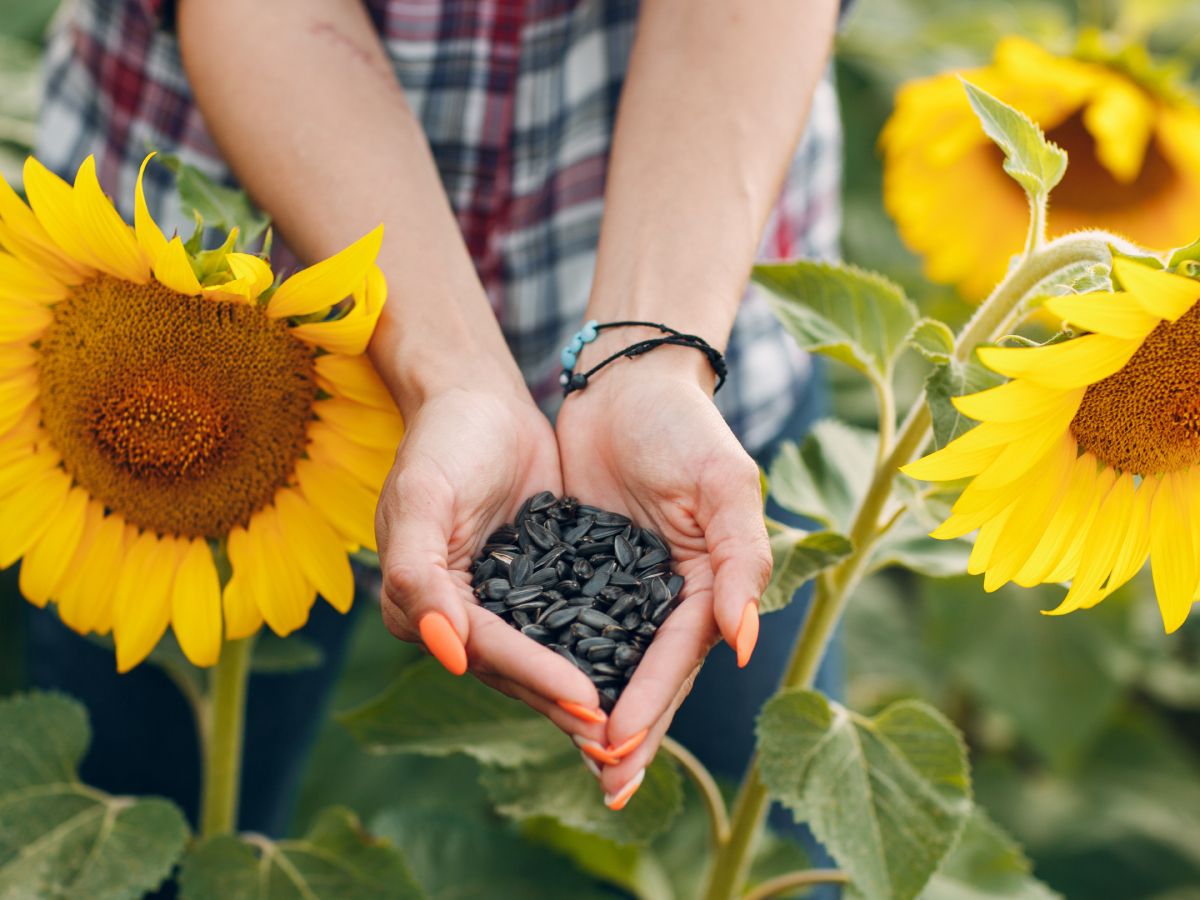Introduction
Harvesting and eating sunflower seeds straight from your garden can be a rewarding and healthy experience. Sunflower seeds are not only delicious but packed with nutrients like vitamin E, magnesium, and healthy fats. However, many gardeners wonder whether it’s safe to consume seeds directly from their garden and how to prepare them for eating. This guide explores practical steps, safety considerations, and nutritional benefits of eating sunflower seeds from your garden.
Are Sunflower Seeds from Your Garden Safe to Eat?
Understanding the Safety Factors
Sunflower seeds grown in your garden are generally safe to eat, but certain precautions ensure they are edible and healthy:
- Avoid chemical exposure: Do not consume seeds from plants treated with pesticides or herbicides not labeled for edible crops.
- Check for mold or damage: Seeds must be free from mold, discoloration, or insect damage, which can cause health risks.
- Harvest at the right time: Seeds should be fully mature and dry on the plant before harvesting to avoid bitterness and poor texture.
Expert Tip
According to agricultural experts, hand-harvesting sunflower heads when the back turns brown and the seeds are plump maximizes seed quality and safety.
How to Harvest and Prepare Sunflower Seeds for Eating
Step 1: Harvesting
- Wait until the sunflower head droops and the back turns brown.
- Cut the head off, leaving a few inches of the stalk attached.
- Hang the head upside down in a dry, ventilated space to fully dry.
Step 2: Extracting Seeds
- Once dry, rub the seeds off by hand or with a brush.
- Discard any shriveled or damaged seeds.
Step 3: Cleaning and Roasting
- Rinse seeds under cool water and dry thoroughly.
- For roasting, toss seeds with a little oil and salt (optional).
- Roast in an oven at 300°F (150°C) for 20-30 minutes, stirring occasionally.
Roasted sunflower seeds have enhanced flavor and a crunchy texture, making them a tasty snack.
Nutritional Benefits of Eating Sunflower Seeds from Your Garden
Sunflower seeds are nutrient-dense and provide several health benefits:
- Rich in Vitamin E: Acts as a powerful antioxidant protecting cells.
- High in Magnesium: Supports muscle and nerve function.
- Healthy Fats: Contains unsaturated fats beneficial for heart health.
- Protein and Fiber: Helps with satiety and digestive health.
Regular consumption of sunflower seeds can support immune function, reduce inflammation, and promote skin health.
Common Questions About Eating Garden-Grown Sunflower Seeds
Can You Eat Sunflower Seeds Raw?
Yes, you can eat raw sunflower seeds, but roasting improves flavor and digestibility. Raw seeds may have a bitter taste if not fully dried.
How to Store Sunflower Seeds?
Store seeds in an airtight container in a cool, dry place. Roasted seeds can last several weeks, while raw seeds should be used sooner to avoid rancidity.
Are There Any Allergies to Consider?
Sunflower seed allergies are rare but possible. Start with a small amount if trying for the first time.
Conclusion
Eating sunflower seeds from your garden is a safe and nutritious way to enjoy this natural snack when you follow proper harvesting and preparation methods. By ensuring your seeds are mature, clean, and free from contaminants, you benefit from their rich nutrient profile, including vitamin E and healthy fats. Whether raw or roasted, garden-grown sunflower seeds can be a delicious addition to your diet. Next time you see those vibrant sunflower heads in your garden, consider harvesting the seeds for a wholesome treat packed with flavor and health benefits!
